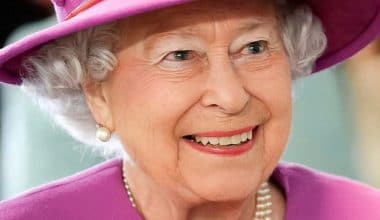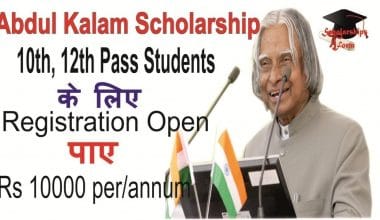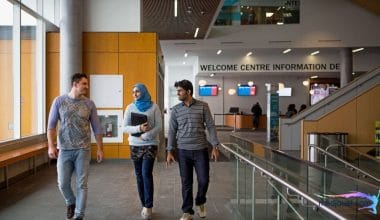Are you interested in studying in any African country like South Africa? Do you know that there are some cheapest universities in South Africa that you can study? These low-tuition universities in South Africa offer quality education.
It’s no wonder that Johannesburg is quite populated; it’s the largest city in South Africa. It was only natural for people to want to move to open areas for business, education, and life generally.
In recent years, South Africa has stood as a place of educational excellence where expatriate easily seeks admission in their institutions.
Its schools could stand in comparison to schools in developed countries even though they haven’t marched exactly to their standard.
In this respect, people are in constant research in schools in South Africa and most of Johannesburg to ascertain one that will be pocket-friendly and simultaneously fulfill their academic desires which are excellence. This search has necessitated listing 15 schools in Johannesburg that are pocket-friendly with a touch of excellence and not left behind.
This listing will also aid you to find out the school fees attached to your school of interest, courses, website, and ranking.
Meanwhile, below is our table of content.
Table of contents
- Know about South Africa
- Education in South Africa
- Tertiary Education in South Africa
- List of Cheapest Universities in South Africa
- University of Kwazulu Natal
- University of Free State
- Rhodes University
- University of Kwazulu Natal
- University of Cape Town
- University of Fort Hare
- Nelson Mandela Metropolitan University
- University of Witwatersrand
- Stellenbosch University
- University of Johannesburg
- University of Limpopo
- University of Venda
- University of Pretoria
- University of Venda
- University of Zululand
- Benefits of studying in South Africa as an International Students
- Cost of living in South Africa
- General Application procedures in South African Universities
- Requirements for International Students
- How to Obtain Student Visa for South Africa
Know about South Africa
South Africa with a population of 50.58 million people has a rich mix of culture, languages, and religious beliefs. The country is a nice place to be, with people from several nations, races, and religions. Most people living there are Africans who make up 75.5 of the population. The following universities are considered the best for international students because of their low tuition fees and quality of education.
If you want to experience life in one of the world’s most diverse and complex countries, you may choose to study in South Africa. The country excels in many areas, offering some of the world’s most striking natural scenery and wildlife, diverse and dynamic cities and towns–and a strong selection of leading universities with an international outlook.
Education in South Africa
Education in South Africa is under the authority of two national departments, the Department of Basic Education (DBE) and the Department of Higher Education and Training (DHET), responsible for tertiary education and vocational training. Before 2009, these two departments were represented in a single Department of Education.
The DBE department deals with public schools, private schools (also referred to by the department as independent schools), early childhood development (ECD) centers, and special needs schools. The public and private schools are collectively known as ordinary schools, the most dominant kind of schools in South Africa.
The Department of Higher Education and training is responsible for seeing after further education and training colleges, adult primary education and training centers, and higher education institutions.
There are nine provinces in South Africa. These provinces have their education departments responsible for implementing the national department’s policies and dealing with local issues, and they have a level of autonomy.
According to a research study, in 2010, the basic education system comprised 12 644 208 learners, 30 586 schools, and 439 394 teachers.
In 2009, the higher education and training system comprised 837 779 students in Higher Education institutions, 420 475 students in state-controlled FET institutions, and 297 900 in state-controlled ABET centers.
The South African government is known to give an upper quota to education when it comes to budget. Research showed they spent 21% of the national budget on education, paying more attention to higher education by allocating some ten percent of the education budget.
These departments receive their funding entirely from the central government taxes. The department of Basic Education pays a portion of teachers’ salaries in government schools, whereas independent schools are funded privately. Government schools in extreme cases may need to support their funding through parent contributions.
Tertiary Education in South Africa
Tertiary education in South Africa in the post-apartheid era has never been more volatile than it is currently, some two decades into democracy. Yet, it is, contradictorily, perhaps the part of the entire education sector that has advanced most in achieving national goals of quality, equity, and transformation.
With low tuition universities in South Africa, Higher education in South Africa had gained some heights: there is the integration of its system which was hitherto divided; an established quality assurance and advisory body; a one-bodied national department that is dedicated to duties; a fundamentally altered institutional landscape; greater access and a tremendous diversification of the radical demography of its students, research showed 80% increase in African students; higher research output and international recognition through large research projects, more attention paid to teaching and learning, to curriculum and to student support; the implementation of a governing framework for its educational offerings; the allocation of financial aid to many more students than twenty years ago; and having nationally coordinated projects and grants to address some of the identified areas for improvement.
Despite the many advances and achievements of higher education outlined in this review, however, the student protests of 2015 and early 2016 have given expression to underlying faultiness in quite a dramatic way.
The pressures of worsening underfunding in the context of enrolment growth, and increasing student expectations and frustrations concerning access and financial aid, have led to widening fissures in the system.
This review has identified, in addition to under-funding, the limits of academic staff capacity as a further crack in the foundations that threatens to widen and harm the quality of provision. Immediate solutions to the particular crisis that higher education finds itself in need to be found. Still, it is important that any future courses of action are informed both by rational analysis of empirical data, and reflection on and understanding of the directions, trends, and trajectories of the system in the past.
The successes and limitations of policy in steering the system, the responses of the system to global trends to which it is vulnerable, and the agency of institutions in shaping the system, are all aspects that lend themselves to careful unpacking from various perspectives, so that the past may inform the future.
List of Cheapest Universities in South Africa
Here is a list of the Cheapest Universities in South Africa
- University of Kwazulu Natal
- University of Free State
- Rhodes University
- North-West University
- University of Cape Town
- University of Fort Hare
- Nelson Mandela Metropolitan University
- University of Witwatersrand
- Stellenbosch University
- University of Johannesburg
- University of Limpopo
- University of Venda
- University of Pretoria
- The University of the Western Cape
- University of Zululand
University of Kwazulu Natal
It is a university with five campuses in the province of KwaZulu-Natal in South Africa. It was formed on 1 January 2004 after the merger between the University of Natal and the University of Durban-Westville. It parades the Motto Inspiring Greatness.
It has its Chancellor as Mogoeng Mogoeng and the Vice-Chancellor as Dr. Albert van Jaarsveln. It is in Durban, Westville, Pinetown, and Pietermaritzburg, KwaZulu-Natal, South Africa.
Courses
The university is made up of four colleges and many schools which fall under the colleges and offers courses like
Agriculture, Engineering, Science, Earth, and Environmental Sciences, Chemistry, Physics, Life Sciences, Mathematics, Statistics, and Computer Science, Medicine, Laboratory Medicine, Nursing, Public Health, Religion, Philosophy and Classics, Social Sciences, Applied Human Sciences, Built Environment and Development Studies, Education, Law and Management Studies, Accounting, Economics, and Finance.
Tuition fee
R24, 300-R53, 100 for undergraduate studies(depending on the course applied for)
R39, 770-R44, 000 for a master’s program
R30, 680-R40, 000 for a doctorate program
Ranking
UKZN was ranked 4th among universities in South Africa and 500th worldwide.
University of Free State
The University of the Free State is a multi-campus public university in Bloemfontein, the capital of the Free State and the judicial capital of South Africa. It is one of the low-tuition universities in South Africa.
It was established in 1904, its Chancellor is Dr. Khotso Mokhele and Vice-Chancellor Francis Petersen. Its Location is in Bloemfontein, Free State, South Africa.
In 1910, the Parliament of the Orange River Colony passed legislation declaring the GUC an official educational institution in the fields of the Arts and Sciences.
The University was declared a full-fledged, independent university in 1950, and the name was again changed to the University of the Orange Free State. In February 2001, the University’s name changed to the University of the Free State, which was adopted to reflect the natural character of the institution and its environment.
Courses
The school runs an undergraduate and postgraduate program that offers courses like;
Economic and Management Sciences, Education, Health Sciences, Law, Natural and Agricultural Sciences, Humanities, and Theology
Tuition fee
R16, 500 for undergraduate studies
R19,910 for international students
Ranking
The university is rated 9th in South Africa and 2095th in the world.
Rhodes University
Rhodes University is a public research university in Grahamstown in the Eastern Cape Province of South Africa. It is one of the low-tuition universities in South Africa and the province. Established in 1904, Rhodes University is the province’s oldest university, and it is the fifth or sixth oldest South African university in continuous operation, being preceded by the University of the Free State (1904), University of Witwatersrand (1896), Stellenbosch University (1866) and the University of Cape Town (1829).
Rhodes was founded in 1904 as Rhodes University College, named after Cecil Rhodes, through a grant from the Rhodes Trust. It became a constituent college of the University of South Africa in 1918 before becoming an independent university in 1951.
Courses
It offers undergraduate and master’s program in courses within the field of Humanities, Commerce, Law, Science, Education and Pharmacy.
Tuition fee
R26, 590-R30, 705 for an undergraduate program
R35, 700-R37, 600 for international students
Ranking
The school is ranked 5th in South Africa and 700th in the world.
University of Kwazulu Natal
The North-West University is a South African university with three campuses: Potchefstroom, Mahikeng (Previously Mafikeng), and Vanderbijlpark, South Africa. In Potchefstroom is the head office of the University. With its merged status, the North-West University became one of the largest universities in South Africa and has 64 081 students (full-time and distance education).
The low-tuition universities in South Africa that merged to form this institution are the Potchefstroom University for Christian Higher Education and the University of North-West (formerly the University of Bophuthatswana). Potchefstroom University already had a Vanderbijlpark branch.
The NWU officially emerged on 1 January 2004 as part of the South African government’s attempt to transform higher education.
Courses
Accounting Sciences, Business and Governance (Business School), Economic Sciences, Industrial Psychology and Human Resource Management, Management Sciences, Tourism, Language Education, Psycho-Social Education, Professional Studies in Education, Mathematics, Science and Technology Education, Commerce and Social Studies in Education, Chemical and Mechanicals Engineering, Electrical, Electronic and Computer Engineering, Mechanical and Nuclear Engineering, Industrial Engineering, Human Movement Sciences, Kinderkinetics, Pharmacy, Psychosocial Health, Physiology, Consumer Sciences, Nutrition, Occupational Hygiene, Nursing, Communication Studies, Government Studies, Languages, Music, Philosophy, Social Sciences, Mercantile Law, Public Law, Private Law, Physical and Chemical Sciences, Biological Sciences, Geo- and Spatial Sciences, Agricultural Sciences, Mathematical and Statistical Sciences, Computer Science and Information Systems, Business Mathematics and Statistics, Indigenous Knowledge Systems, Christian ministry and Leadership and Ancient Language and Text Studies.
University of Cape Town
Founded in 1829, the University of Cape Town (UCT) is a public research university located in Cape Town in the Western Cape province of South Africa. UCT was founded as the South African College making it the oldest higher education institute and among the low tuition universities in South Africa.
It is jointly the oldest university in South Africa and the oldest extant university in Sub-Saharan Africa alongside Stellenbosch University which received full university status on the same day in 1918.
The University of Cape Town was established as the South African College, a high school for boys. The College had a small tertiary-education facility that grew substantially after 1880 when the discovery of gold and diamonds in the north – and the resulting demand for skills in mining – gave it the financial boost it needed to grow.
The College developed into a fully-fledged university from 1880 to 1900, thanks to increased funding from private sources and the government.
Courses
Accounting, Economics, Finance and Tax, Information Systems, Architecture, Planning and Geometrics, Chemical Engineering, Civil Engineering, Construction Economics and Management, Electrical Engineering, Mechanical Engineering, Anesthesia and Perioperative Medicine, Health and Rehabilitation Sciences, Health Sciences Education, Human Biology, Integrative Biomedical Sciences, Medicine, Obstetrics and Gynecology, Pediatrics and Child Health, Pathology, Psychiatry and Mental Health, Public Health and Family Medicine, Radiation Medicine, Surgery, African and Gender Studies, Anthropology and Linguistics, Dance, Drama, Economics, Education, English Language and Literature, Film and Media Studies, Fine Art, Historical Studies, South African College of Music, Philosophy, Political Studies, Psychology, Religious Studies, Social Development, Sociology, Law, Archaeology, Astronomy, Biological Sciences, Chemistry, Computer Science, Environmental and Geographical Science, Geological Sciences, Mathematics and Applied Mathematics, Molecular and Cell Biology, Oceanography, Physics and Statistical Sciences.
Tuition fee
R21, 500 for the undergraduate program
R75, 000 for international students
R60, 000 for the postgraduate program with an additional R3 750 for the Ph.D. program.
Ranking
The university is rated 2nd in the country and 120th in the world.
University of Fort Hare
The University of Fort Hare is known as one of the low-tuition universities in South Africa.
It was a key institution of higher education for black Africans from 1916 to 1959. It offered a Western-style academic education to students from across sub-Saharan Africa, creating a black African elite. Fort Hare alumni were part of many subsequent independence movements and governments of newly independent African countries.
In 1959, the university was subsumed by the apartheid system, but it is now part of South Africa’s post-apartheid public higher education system. It is known for its notable alumni, which include several African heads of state and Nobel Prize, winners.
Courses
It offers undergraduate and master’s programs in courses in Education, Science, Agriculture, Social Sciences & Humanities, Management & Commerce, and Law.
Tuition fee
R18, 620-R44, 374 for undergraduate programs
R26, 000-R45, 000 for international students
R12, 470-R21, 600 for postgraduate program
Ranking
The school is ranked 17th in South Africa and 1879th in the world
Nelson Mandela Metropolitan University
Formed in 2005, Nelson Mandela University (formerly Nelson Mandela Metropolitan University, NMMU, formerly the University of Port Elizabeth (UPE)) is among the low tuition universities in South Africa with its main administration in the coastal city of Port Elizabeth.
Nelson Mandela University was founded through a merger of Port Elizabeth Technikon institutions and the University of Port Elizabeth in January 2005. Still, its history dates back to 1882, with the foundation of the Port Elizabeth Art School. The University draws international students from all over the world.
There are over 3,000 international students, including students from the United States, France, China, Germany, Belgium, Denmark, Finland, Netherlands, Norway, Sweden, United Kingdom, and many African countries.
In 2004, before the merger, UPE had taken control of the Port Elizabeth Campus of Vista University. The name of the University was formally changed from Nelson Mandela Metropolitan University to Nelson Mandela University on 20 July 2017.
Nelson Mandela University (NMU) is a new-generation university, distinguished by the wide range of study options and access routes open to students. NMU nurtures innovation, fosters creativity, embraces technology, and develops people to meet the challenges of tomorrow.
Courses
Music, Art and Design, Architecture, Languages, Governance, Media, Communication and Culture, Law, Business and Economic Sciences, Industrial Psychology and Human Resources, Accounting, Economics, Development and Tourism, Management Sciences, Initial Teacher Education, Continuing Professional Development, Education Research & Engagement, Engineering, Information and Communication Technology, Built Environment, Behavioral Sciences, Clinical Care Sciences, Lifestyle Sciences, Medicinal Sciences, Bimolecular & Chemical Sciences, Computer Science, Mathematics, Physics and Statistics, Environmental Sciences, Natural Resource Management, and Nelson Mandela University Business School.
Tuition fee
R93, 770 for the undergraduate program
R17, 940-R22, 460 for master’s program
R18, 280-R20, 110 for the Ph.D. program
Ranking
The University is rated 12th in South Africa and 1311th in the world.
School Website
University of Witwatersrand
Established in 1896, the University of the Witwatersrand, Johannesburg, is a multi-campus South African public research university in central Johannesburg’s northern areas. It is more commonly known as Wits University or Wits. It is one of the low-tuition universities in South Africa.
In 1959, the Extension of University Education Act forced restricted registrations of black students for most of the apartheid era; despite this, several notable black leaders graduated from the university. It was desegregated once again, before the abolition of apartheid, in 1990. Several of apartheid’s most provocative critics, of either European or African descent, were one-time students and graduates of the university.
The university was founded in Kimberley in 1896 as the South African School of Mines. Eight years later, in 1904, the school was moved to Johannesburg and in 1920, the school was renamed the University College, Johannesburg.
Courses
Accountancy, commerce, economics, management, law, Architecture & Planning, Chemical and Metallurgical Engineering, Civil & Environmental Engineering, Construction Economics & Management, Electrical & Information Engineering, Mechanical, Industrial & Aeronautical Engineering and Mining Engineering, dentistry, medicine, medical and health sciences, nursing, occupational therapy, physiotherapy, pharmacy, Social Sciences, Literature and Language Studies, Human and Community Development, Arts, and Education, Animal, Plant and Environmental Sciences; Chemistry; Physics; Molecular and Cell Biology; Geography, Archaeology and Environmental Studies; Geosciences; Mathematics; Statistics and Actuarial Science, Computer Science and Applied Mathematics.
Tuition fee
R44, 910 for undergraduate program
R65, 300-R151, 970 for masters program
R204, 100 for MBA program
R20, 670 for PhD program
Ranking
The University is ranked 1st in South Africa and 176th among universities worldwide. Its business school is rated 6th in Africa and the Middle East.
READ ALSO: 10 Best Private Universities in South Africa 2024
Stellenbosch University
Stellenbosch University is a public research university in Stellenbosch, a town in the Western Cape province of South Africa. Stellenbosch is jointly the oldest university in South Africa and the oldest extant university in Sub-Saharan Africa alongside the University of Cape Town which received full university status on the same day in 1918. Stellenbosch University designed and manufactured Africa’s first microsatellite, SUNSAT, launched in 1999.
Stellenbosch University was the first African university to sign the Berlin Declaration on Open Access to Knowledge in the Sciences and Humanities.
The students of Stellenbosch University are nicknamed “Maties”. The term probably arises from the Afrikaans word “tamatie” (meaning tomato, and referring to the maroon sports uniforms and blazer color).
Courses
The university offers undergraduate and master’s programs in courses within the field of Arts and Social Sciences, Science, Education, AgriSciences, Law, Theology, Economic and Management Sciences, and Engineering.
Tuition fee
R20, 520-R21, 690 for undergraduate and postgraduate diploma programs for African students
R43, 380 for undergraduate and postgraduate diploma programs for international non-African students
Ranking
The university is rated 2nd in South Africa, 3rd in Africa, and 390th worldwide.
RELATED POST: Stellenbosch University Postdoctoral Fellowship in South Africa
University of Johannesburg
Established in 2005, the University of Johannesburg is a public university in Johannesburg, South Africa. It is founded due to a merger between the Rand Afrikaans University (RAU), the Technikon Witwatersrand (TWR), and the Soweto and East Rand campuses of Vista University.
Before the merger, the Daveyton and Soweto campuses of the former Vista University had been incorporated into RAU. As a result of the merger of Rand Afrikaans University (RAU), it is common for alumni to refer to the university as RAU.
Its vision of the UJ is to be “an international University of choice, anchored in Africa, dynamically shaping the future. The mission can be described as inspiring its community to transform and serve humanity through innovation and the collaborative pursuit of knowledge”. These are underpinned by four values: imagination, conversation, regeneration, and ethical foundation.
READ ALSO: SM Foundation Scholarships For College Students In Philippines, 2024
Courses
Industrial Design, Architecture, Fashion Design, Graphic Design, Interior Design, Jewellery Design and Manufacture, Multimedia, Visual Art, Business and Economics, Education, Engineering, Aircraft Maintenance and Engineering, Chemical Engineering, Civil Engineering Science, Civil Engineering Technology, Construction Management and Quantity Surveying, Electrical and Electronic Engineering Science, Electrical and Electronic Engineering Technology, Metallurgy, Mechanical & Industrial Engineering Technology, Mechanical Engineering Science, Mine Surveying, Mining Engineering, Quality and Operations Management, Town and Regional Planning, Laser Research, Water and Health Research, Biomedical Technology, Chiropractic, Emergency Medical Care, Environmental Health, Homeopathy, Human Anatomy and Physiology, Medical Imaging and Radiation (Radiography), Nursing, Optometry, Podiatry, Sport and Movement Studies, Law, Nanotechnology, Energy and Sustainable Development, aquatic, Eco-toxicology, Economic Geo-metallurgy. Computer Science and Software Engineering, Applied Chemistry, Applied Physics, and Engineering Mathematics, Biochemistry, Biotechnology, and Food Technology, Botany and Plant Biotechnology, Chemistry, Geography, Environmental Management & Energy Studies, Geology, Physics, Pure and Applied Mathematics, Statistics and Zoology.
Tuition fee
R102, 280-R110, 330 for undergraduate program
R14, 634-R171, 158 for postgraduate program
Ranking
The University is rated 5th in South Africa, 7th in Africa, and 601st globally.
University of Limpopo
Since 2005, the University of Limpopo has existed as an institution in the Limpopo Province, South Africa. It was formed by the merger of the University of the North and the Medical University of South Africa (MEDUNSA). These previous institutions formed the Turfloop and MEDUNSA campuses of the university, respectively. In 2015 the MEDUNSA campus split and became the Sefako Makgatho Health Sciences University.
Courses
Languages & Communication Studies, Social Sciences, Education, Policing, Law, Accountancy, Economics & Management, Physical & Mineral Sciences, Molecular & Life Sciences, Agricultural & Environmental Sciences, Mathematical & Computer Sciences, Medicine and Health Science
Tuition fee
R30, 772-R49, 000 for the undergraduate program
R30, 716-R41, 686 for Masters Program
R43, 600 for Ph.D. program
International students are expected to pay about a 50% increment in the tuition fee
Ranking
The University is ranked 17th in the country and 2982nd in the world.
University of Venda
The University of Venda (UNIVEN) is a South African Comprehensive rural-based university, located in Thohoyandou in Limpopo province. It was established in 1982 under the then Republic of Venda government.
It was established in 1982 to serve the inhabitants of the Venda bantustan, however, the student body at Univen never consisted of Venda students; only students from all over the Northern Transvaal attended the Institution.
With the South African government’s program of tertiary education reform in the new millennium, Univen became a “comprehensive university”, offering theoretically and practically oriented courses.
Courses
The school offers undergraduate and master’s programs in courses in Agriculture, Education, Environmental Science, Health Sciences, Human and Social Sciences, Management Sciences, Mathematical, and Natural Sciences, and Law.
Tuition fee
R31, 630-R38, 980 for undergraduate studies
R12, 000-R24, 000 for master’s studies
R13, 000-R26, 640 for Ph.D. studies
Ranking
The institution is rated 18th in the nation and 3347th in the world.
University of Pretoria
The University of Pretoria is a multi-campus public research university in Pretoria, the administrative and de facto capital of South Africa. The university was established in 1908 as the Pretoria campus of the Johannesburg-based Transvaal University College and is the fourth South African institution in continuous operation to be awarded university status.
It has the vision to be a leading research‐intensive university in Africa, recognized internationally for its quality, relevance, and impact, as also for developing people, creating knowledge, and making a difference locally and globally.
It is among the low tuition universities in South Africa.
Technology Management, Built Environment, Dentistry, Engineering, Health Care Sciences, Health Systems and Public Health, Information Technology, Medicine, Public Management and Administration and veterinary science.
R30, 000-R66, 000 for undergraduate programs
The university is ranked 4th in South Africa and 261st in the world.
University of Venda
The University of the Western Cape is a public university located in the Bellville suburb of Cape Town, South Africa. It has a history of creative struggle against oppression, discrimination, and disadvantage. It is known as one of the low-tuition universities in South Africa.
Among academic institutions it has been in the vanguard of South Africa’s historic change, playing a distinctive academic role in helping to build an equitable and dynamic nation. UWC’s key concerns with access, equity, and quality in higher education arise from extensive practical engagement in helping the historically marginalized participate fully in the nation’s life.
The university was established in 1960 by the South African government as a university for Coloured people only. Other universities near Cape Town are the University of Cape Town, (UCT, originally for English-speaking whites) and the Stellenbosch University (originally for Afrikaans-speaking whites).
The school offers undergraduate and master’s programs in courses within the field of Arts, Community and Health Sciences, Dentistry, Economic and Management Sciences, Education, Law, and Natural Sciences
R18, 880 for undergraduate studies for local students
R36, 595 for undergraduate studies for international students
R33, 070 for postgraduate studies
Ranking
The university is rated 6th in South Africa, 7th in Africa, and 885th worldwide.
University of Zululand
Established in 1960, the University of Zululand is the only comprehensive tertiary educational institution north of the Tugela River in KwaZulu-Natal and among the low tuition universities in South Africa. Its new status is in accordance with South Africa’s National Plan for Higher Education aimed at eradicating inequity and costly duplication.
As a result, Unizulu offers career-focused programs as well as a limited number of relevant university degree courses that have been structured with potential employees and employers in mind.
The university has extended its existing links with a wide array of tertiary educational institutions in the United States and in Europe through partnerships. The University strives to produce graduates with high-level knowledge and skills who have been educated for citizenship and for active participation in society.
Courses
Accounting, Business Management(incorporating Human Resources Management), Economics, Public Administration, Law, Comparative and Science of Education, Curriculum and Instruction Studies, Educational Planning and Administration, Educational Psychology, Foundations of Education, Agriculture, Biochemistry and Microbiology, Botany, Chemistry, Computer Science, Consumer Science, Geography and Environmental Studies, Human Movement Sciences, Hydrology, Mathematical Science, Nursing, Physics and Engineering, Science Foundation and Zoology.
Tuition fee
R3, 000 for undergraduate studies
Ranking
The university is ranked 22nd in South Africa and 4228th in the world.
Benefits of studying in South Africa as an International Students
There are several reasons why people should study in the lovely country of South Africa. They include the following:
South Africa is one of the leading countries in Africa in education. It also offers a great variety of languages. You can choose one out of ten languages to study in South Africa. South Africa also has great teachers who can ensure your knowledge.
Cost of living in South Africa
The cost of living in South Africa is also relatively cheap. You can survive in South Africa even if you have as much as $400 in your pocket. It will be enough to cover expenses for food, traveling, accommodation, and utility bills. According to the Low Tuition Universities, the undergraduate programs in South Africa will cost you $2,500-$4,500. At the same time, the postgraduate programs will cost you about $2,700-$3000. The price is for one academic year.
South Africa has great colleges and universities that are doing their best to obtain the higher education requirements of students worldwide who want to study in English.
South Africa has about 10 languages from which students can decide to enroll in the academic program they want. Apart from a conducive environment for learning, South African universities have highly-rated teachers. The cost of living and education in South Africa is affordable courtesy of the low exchange rate.
General Tuition Fee in South Africa
Although there are free and low tuition universities in South Africa, the Tuition fee for undergraduate programs in South Africa is about $2500-$4500 while for postgraduate programs it could cost about $2700-$3000.
What is the Academic Calendar of South African Universities?
Usually, the academic calendar in South Africa consists of two semesters. The first semester starts at the beginning of February and the second semester starts at the end of July.
READ ALSO: 10 Best Pharmacy Schools In South Africa 2024
General Application procedures in South African Universities
Applicants or candidates have the choice of either applying through the internet or through admission agencies. For those interested in applying through the internet, the following steps should be adhered to:
- Applicants should visit the web portal of the university they have chosen and make a request for an online application form.
- Applicants should fill the form with the right information and upload the necessary documents.
- Once done with the form, applicants should send it to the admission department of the university or send it to the address stated on the form.
- Once the applicant’s form has been considered he or she will be sent an offer by airmail or Email
After applicants have received the offer they should ask for a visa pack from the school so they can start processing their visa
At this point, you are ready for your enrolment
Requirements for International Students
The requirement to make entry into a school is peculiar to the school and all the program you intend to run is also put into consideration.
- Most universities in South Africa generally have an online application form that you are expected to fill out before you can be enrolled in the system.
- For non-South African applicants, it is important to note that they must meet the requirements of matriculation exemption. The matriculation exemption can be achieved by obtaining a secondary-school diploma with good marks and scoring well on any standardized tests offered in your home country.
- It is also a must to prove your English language skills; this is because most South African universities conduct their courses in English. For students who are from a non-English speaking country, they are to prove their proficiency through a good score on the TOEFL (Test of English as a Foreign Language) or IELTS (International English Language Testing System).
- There is a need for timely processing of your admission process because universities receive many applications throughout the year so it is important that you submit your application before deadlines and that you are submitting the correct documents to ensure favorable consideration and a fair chance of getting admitted.
READ ALSO: 15 Best Boarding Schools In South Africa 2024
How to Obtain Student Visa for South Africa
Before one is qualified to get a student visa to study in any institution in South Africa, such a person must have been accepted in a registered school, college, or university in South Africa and must have also received a letter of acceptance from the said institution ensuring the letter is written on the institution’s letterhead and duly signed.
Then such person is expected to complete a temporary residence permit application which should be done in your home country, then submit it in person in the southern African country in your home country either to the consulate or high commission.
You are expected to submit the following documents;
- A passport valid for at least 30 days after the end of your course, with two consecutive, clear pages left for entry and departure stamps.
- Payment for the South African student visa application.
- Two color passport-sized photographs.
- An official letter from the South African educational institution confirming the duration of your course, plus confirmation that it will inform the authorities if you fail to register, you are de-registered or expelled, or when the course is completed or extended.
- Proof of necessary finances to cover tuition fees and living costs for your stay, around ZAR 3,000 per month (bank statements, travelers’ cheques, etc.), and a cash deposit to cover the cost of a return ticket.
- Certificate of medical aid cover or health insurance recognized by the South African authorities, plus a letter confirming that it will be renewed every year for your stay. You may need to be sure the South African Department of Home Affairs recognizes your medical scheme. If you are a student and the dependent child of a parent holding a South African visa and medical insurance, you may be covered by your parent’s scheme. South African high commissions occasionally accept foreign medical aid and international insurance policies.
- A yellow fever vaccination certificate.
- Medical and radiological reports from within the last six months.
- Information about where you will be living in South Africa.
- A police clearance certificate for every country you’ve lived in for more than 12 months since the age of 18.
- Birth certificates of dependent children.
- Relevant certificates if married, widowed, or divorced.
We recommend other scholarship opportunities.
- Study In Liechtenstein: Cost of Living, Tuition & List Of Universities
- University of Cape Town Entrance Scholarships
- Study in University of Houston: Admission Requirements, Courses Offered Tuition Fee, Ranking
- University of Cape Town Graduate School of Business Scholarships
- LIST OF Low Tuition Universities in South Africa
- TATA AFRICAN SCHOLARSHIPS IN SCIENCE, ENGINEERING, AND TECHNOLOGY
- Commonwealth Masters and Ph.D. Scholarships in New Zealand
- VODACOM BURSARY SCHEME FOR UNDERGRADUATES
DISCLOSURE: This post may contain affiliate links, meaning when you click the links and make a purchase, we receive a commission.






Comments are closed.